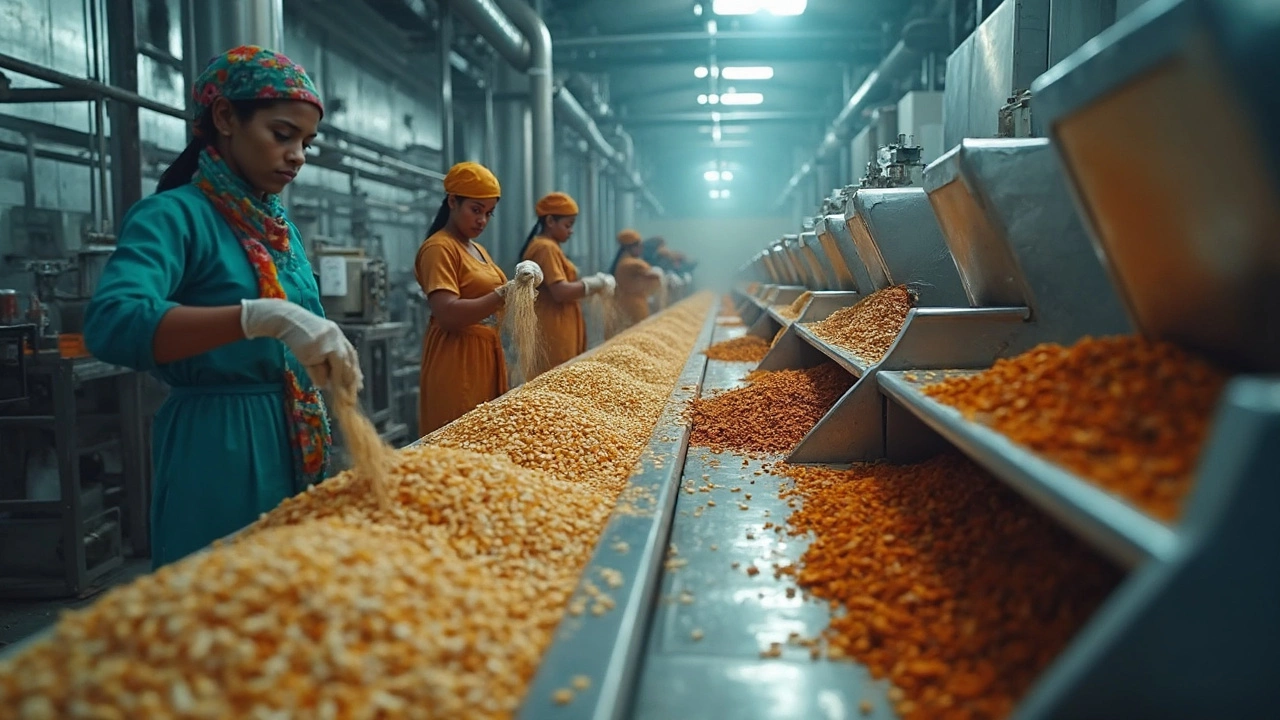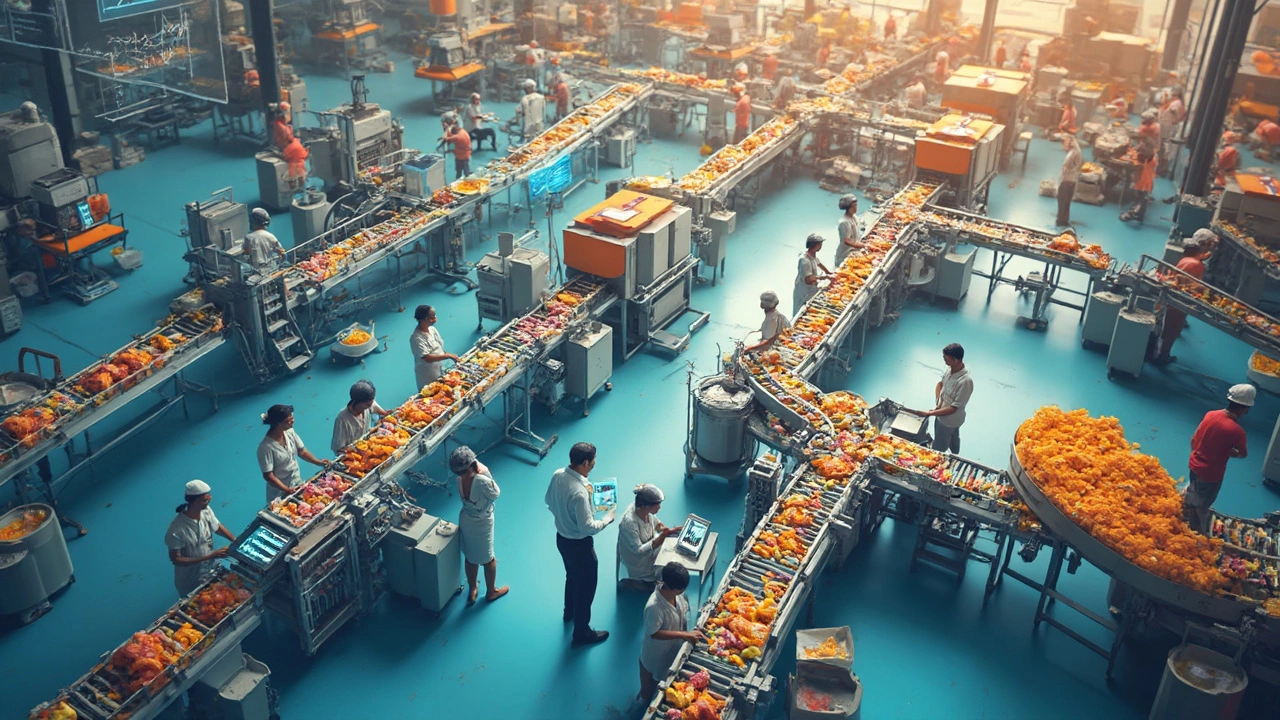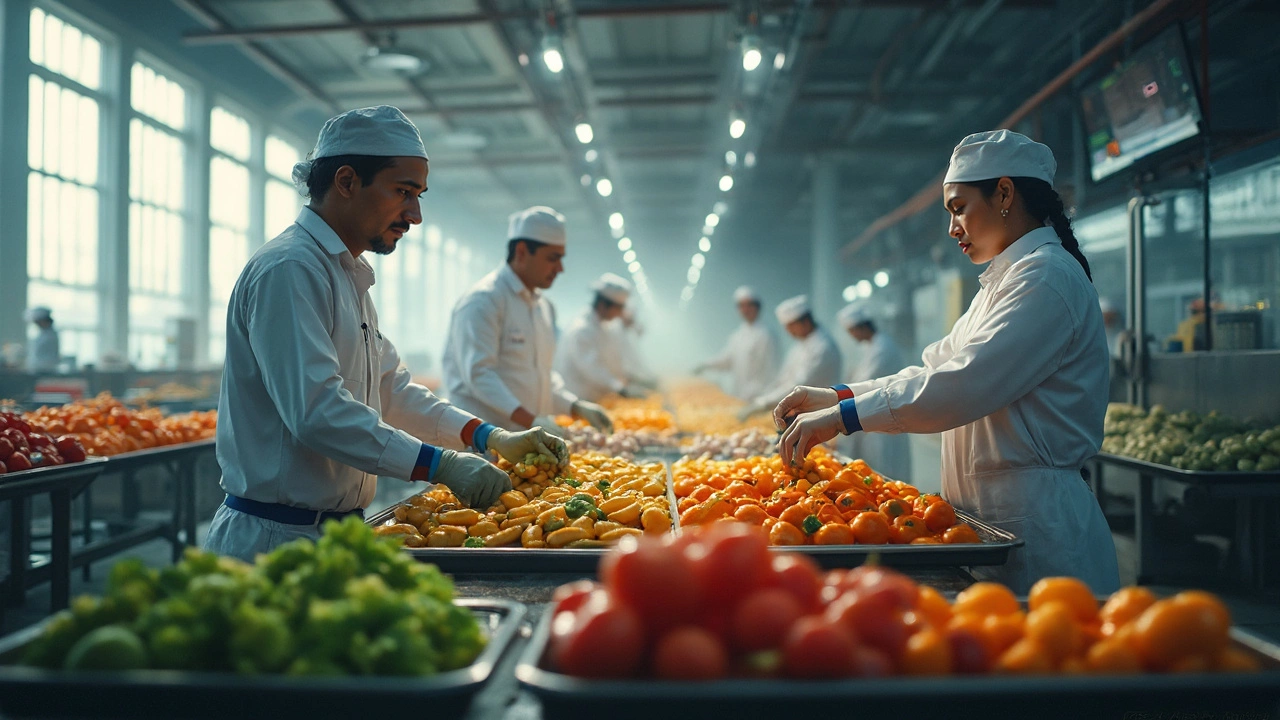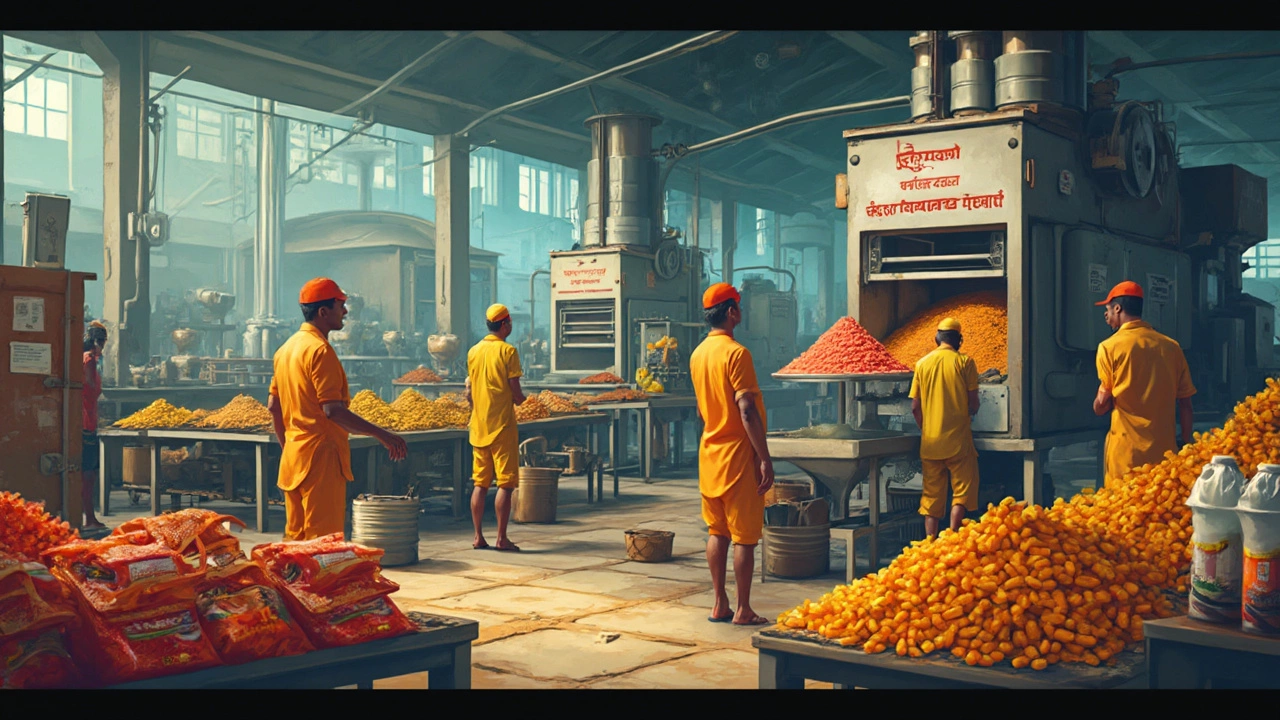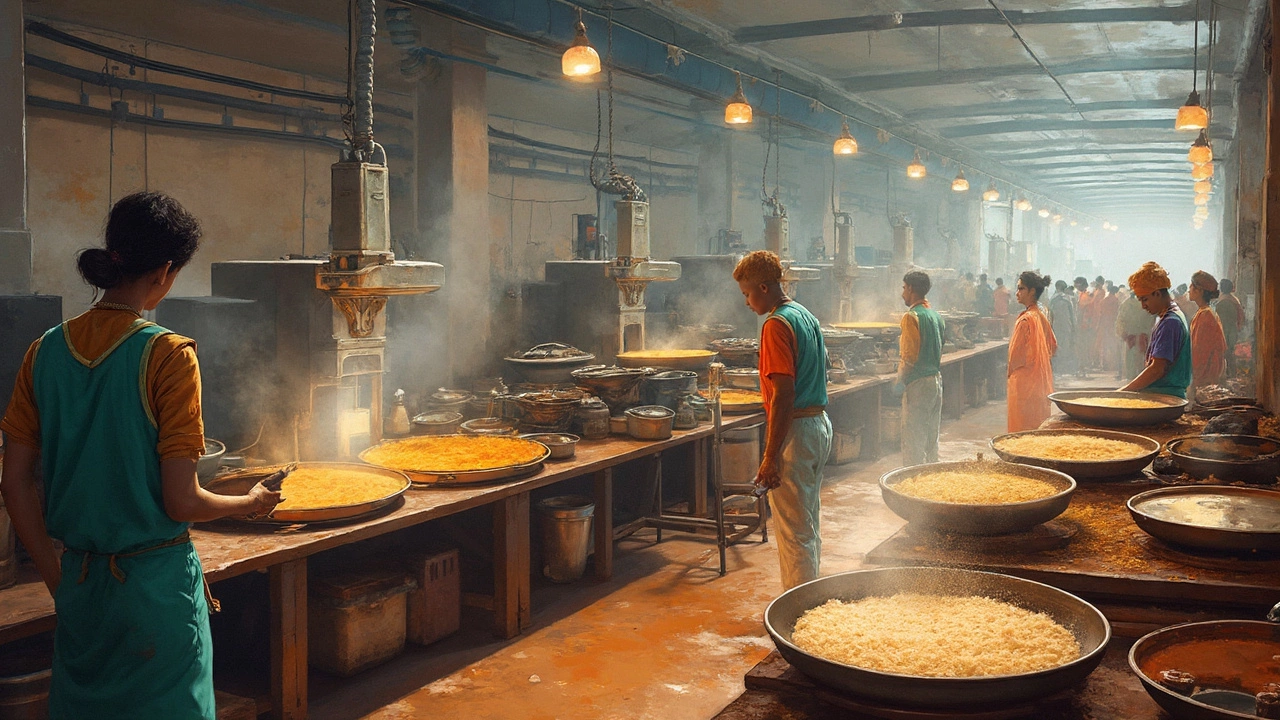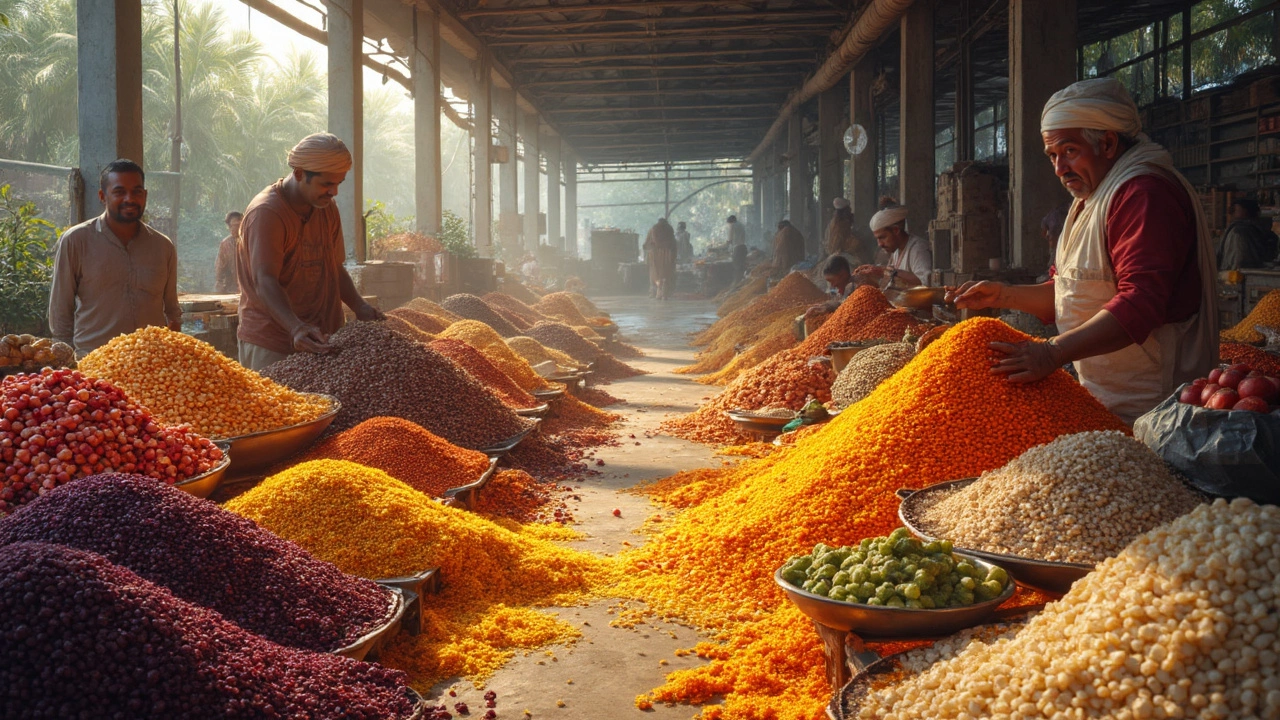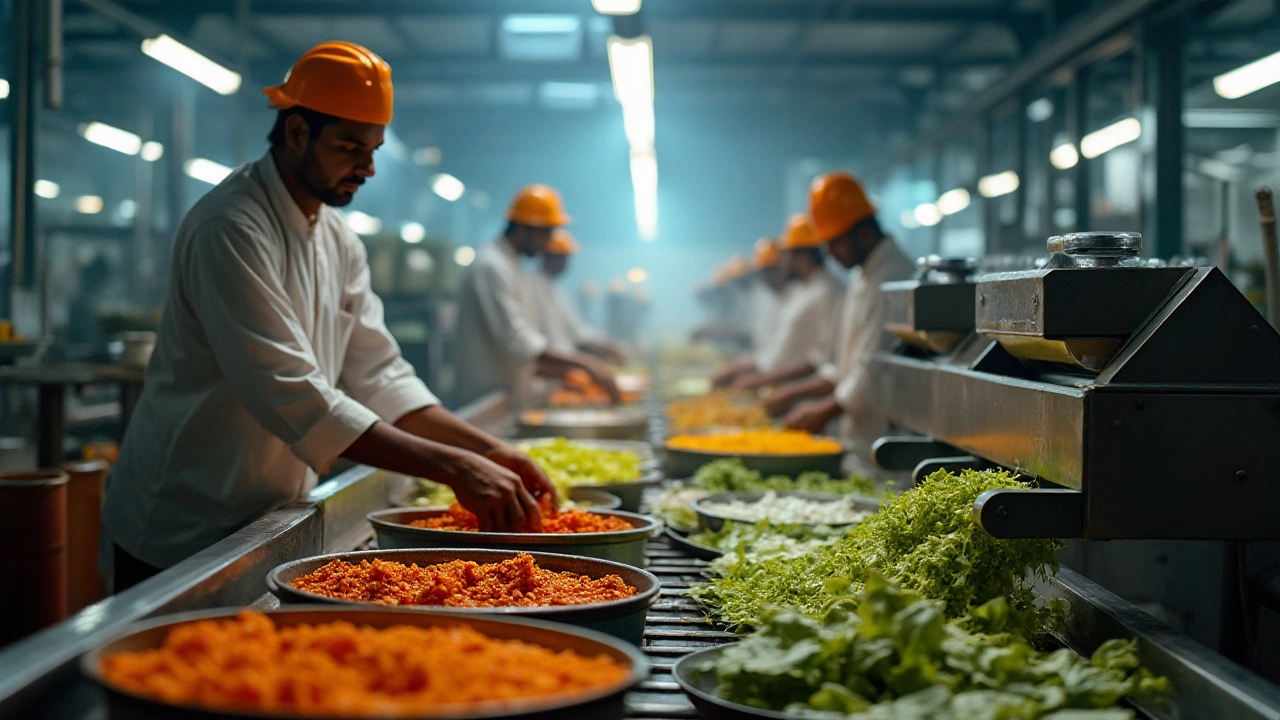Food Processing Tips, Trends & Plastic Solutions
Running a food processing line can feel like juggling knives – you need the right tools, the right timing, and a steady hand. The good news? Modern plastics make the job a lot easier. From keeping ingredients fresh to speeding up clean‑up, the right polymer can save you time, money, and headaches.
Choosing the Right Plastic for Food Processing
First thing’s first: not all plastics are created equal. When you pick a material, think about temperature, chemical resistance, and food‑contact safety. Polypropylene (PP) handles hot water and steam without warping, making it perfect for trays that go straight into the cooker. Polyethylene (PE) is great for flexible bags because it seals well and won’t crack under pressure.
If you’re after something super clear for display packs, go for PET. It’s tough, transparent, and recyclable – a win for both customers and the planet. Remember to check the FDA or EU food‑contact certifications; you don’t want a batch rejected because the packaging isn’t approved.
Another tip: talk to your supplier about add‑on features like antimicrobial coatings or UV‑blocking layers. Those little upgrades can extend shelf life and cut down on spoilage, which directly improves your bottom line.
Top Food Processing Business Ideas for 2025
Thinking about starting a food venture? The market is buzzing with low‑cost, high‑margin ideas. Ready‑to‑eat snack packs, plant‑based protein bites, and 100‑percent natural sauces are selling like hotcakes. What ties them together? Compact, sturdy plastic containers that keep flavor locked in.
One clever move is to offer “PC” – per container – pricing on your menu or product sheet. It’s a clear way for customers to see exactly what they’re paying for, and it removes ambiguity when they order bulk. This simple label can boost trust and speed up the ordering process.
Don’t forget about waste. Customers love brands that show they care about the environment. Using recyclable or biodegradable plastics, or setting up a return‑and‑refill system, can turn a regular buyer into a loyal advocate. It also helps you dodge future regulations that might penalize single‑use plastics.
Finally, keep an eye on material costs. Materials usually take up the biggest chunk of your manufacturing budget, even more than labor. By partnering with a polymer partner who offers competitive pricing and consistent quality, you can lock in costs and avoid surprise spikes.
In short, the right plastic does more than just hold food – it protects flavor, reduces waste, and can be a selling point on its own. Pair smart packaging with trending product ideas, and you’ll have a recipe for growth that’s hard to beat.
Unit Operations Classification in Food Industry: A Practical Guide
Curious how food transforms from raw to ready-to-eat? This article breaks down unit operations in the food industry, making sense of everything from mixing to packaging. You'll get clear explanations, real-world examples, and helpful tips about each classification. Understand what happens inside food factories and why each step matters. No jargon—just straightforward info you can use.
Food Science Degree: What It Really Means for Food Processing
Curious if food science is a real degree? Here’s the lowdown on what you’ll actually learn, why it matters in food processing, and the kind of jobs it leads to. This article breaks down everything from the courses and labs to the unexpected side of taste tests and safety rules. You’ll get tips directly from behind the scenes and see if this degree is right for you. Expect relatable stories, facts, and advice.
Food Processing Companies in the US: How Many Are There and What Do They Do?
Curious about the size of the US food processing industry? This article explores how many food processing companies operate in the US, what kinds of businesses they are, and why it matters. Get a look into the real numbers, top players, and everyday products these companies create. Learn how this industry affects your food choices and the economy. Plus, discover tips for connecting with the right companies if you're in the market.
Food Processing Operations: What Happens Before Food Hits Your Plate
Curious about what really happens to food before it lands on shelves? This article explores the main operations inside food processing units: what they do, why they're needed, and the actual steps your food goes through. You'll learn about basic prep, transformations, and safety checks along the way—not just the technical stuff, but also tips for spotting better-processed foods. Whether you're into cooking or just want to make smarter grocery picks, this guide breaks down all the key moves in food processing.
What Do Scientists Call Food? Understanding the Language Behind Food Processing
Scientists have their own language when it comes to food, with terms that might sound alien to the everyday eater. Understanding these terms can shed light on what actually happens to our food before it arrives on our plates. This article breaks down complex concepts in food processing, revealing how science transforms raw ingredients into the products we see on store shelves. By diving into this fascinating world, you'll get a clearer picture of the food you consume every day.
Understanding the Six Core Unit Operations in Food Processing
Food processing is crucial for turning raw ingredients into the tasty items we enjoy every day. Knowing the six essential unit operations can give us insight into the mechanics behind our favorite foods. From heating and cooling to mixing and separation, each process plays a vital role in food manufacturing. These operations ensure safety, quality, and efficiency, catering to ever-evolving consumer demands. It's fascinating to see how science and technology mix to bring packaged delights to our tables.
Discovering Food Processing Units
Food processing units are the backbone of the food industry, transforming raw ingredients into consumable products. Various types of food equipment and machinery play crucial roles in processing, each serving unique functions like mixing, heating, and packaging. Understanding the types of units and their functions can promote efficiency and safety in food production. Learning about innovative technology in these units can also lead to better quality food products and sustainability. Let’s delve into the world of food processing to uncover the secrets behind your favorite meals.
Understanding ROM in Food Processing Units
Discover the essential role of ROM (Raw Organic Material) in food processing units. Explore what ROM consists of, why it is crucial, and how it affects production efficiency. Learn practical tips on handling and managing ROM effectively to ensure quality output in the food industry. Gain insight into the common challenges of working with ROM and their solutions.
What Does DPU Stand For in Food Processing?
DPU, or Decentralized Processing Unit, is a buzzword in food processing. It's a way to minimize transportation and reduce energy use by processing food close to where it's grown. From farm to plate, DPU enhances freshness and cuts carbon footprint. Explore how it benefits local producers and consumers alike.
Understanding the Role of a Food Scientist in Modern Industries
A food scientist is crucial in bridging the gap between agricultural production and the food consumers enjoy. They are the creative minds and analytical experts behind food processing methods, safety protocols, and nutritional enhancements. With their work, they ensure the food we consume is safe, appealing, and nutritious. This article delves deep into what being a food scientist entails, their importance, and how they influence the food processing industry.
Exploring Diverse Fields in Food Processing Industry
Food processing involves transforming raw ingredients into consumable food products through various techniques. From thermal and mechanical processes to emerging bio-processing technologies, the industry continuously evolves to meet consumer demands. This exploration touches on important areas like preservation, packaging, and quality assurance. As technology advances, the integration of sustainable practices is becoming vital. Understanding these fields is crucial for innovation and safety in the food industry.
